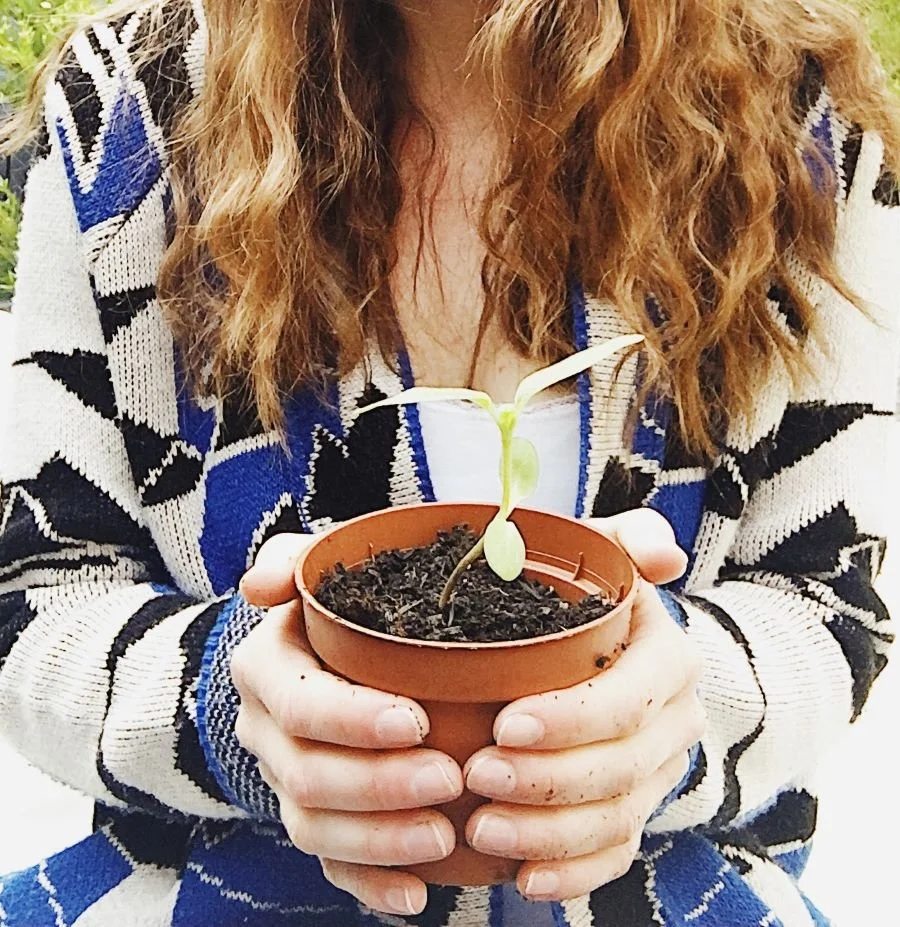Myths Surrounding Metal Raised Beds.
Over the last few years popularity within the gardening world for metal raised beds has soared. They give a curated look to a garden and can make gardening in what was previously a difficult space so much easier. Many less experienced gardeners may think these are the perfect solution for them, and they would be right. However, within the gardening world, I have heard conversations from much more experience gardeners having doubts about metal raised beds. Its something new and with something new will always comes skepticism. So I’ve found the top 6 myths surrounding these metal raised beds to bust them for you and put your mind at rest if you’re considering buying one or many.
Do metal raised beds heat up too much?
Though made of metal it is not true that galvanised steel or metal-raised beds become too hot in the sun. The metal and the soil near the metal may feel warm to the touch on hot days but it is not enough to affect your plants in a negative way.
In fact if you live in colder climates like myself in the UK this warmth can be a benefit to prolong the growing season.
If you live in a warmer climate and wish to keep any extra warmth from your plants there are a number of organic practices you can use.
1. Insulation and Shading: Insulating the bed with layers of organic matter, such as straw or compost, helps moderate the temperature by providing a buffer between the metal and the plant roots. Additionally, using shade cloth or strategically positioning the raised bed in a partially shaded area can provide relief from intense sunlight and mitigate potential heat issues.
2. Watering and Moisture Management: Regular irrigation helps cool down the soil, preventing excessive heat buildup. Mulching the surface of the bed with organic materials such as straw or compost will also help to retain moisture and regulate temperature fluctuations.
3. Plant Selection: Choosing plant varieties that tolerate or thrive in warmer conditions. Heat-tolerant vegetables, herbs, or ornamental plants can be selected, ensuring they are well-suited for the microclimate created within your raised bed.
Though I do live in a cooler climate our raised bed is placed in our front garden which is sheltered from the wind and gets a lot of sunshine. It’s also not an easy place to water (picture me carrying bales of water up the side passage) so isn’t watered so often. I therefore choose Mediterranean herbs, geraniums and grasses, all of which are very drought tolerant. My point here it too look at the micro-climate you have in a certain spot and try to plant accordingly.
2. Do metal raised bed rust easily?
Metal-raised beds can be susceptible to rust over time. For this reason, it is best to buy from a reputable company that guarantees longevity and used materials that will not rust.
Here are some important points to consider:
Metal Selection: The choice of metal material significantly affects its resistance to rust. Certain metals, such as galvanized steel and aluminum, have natural corrosion-resistant properties that make them less prone to rusting. These materials can withstand exposure to moisture and the elements for an extended period without significant rust formation. On the other hand, untreated iron or regular steel can be more susceptible to rust and require extra care.
Protective Coatings: It is possible to apply protective coatings or finishes that help prevent or delay rust formation on metal-raised beds. What is easier, however, is to look if the raised bed you are buying already has a coating on to make it last. Good companies selling these will have.
Our raised bed came from Vegega who I highly recommend and comes with a protective coating and the right metal so they will not rust. Follow my link HERE and use the code HANNAH10 to recieve 10% our order.
If you do wish to apply yourself you can use powder coating or specialized paints designed for metal to provide an additional layer of protection.
Proper Drainage: Adequate drainage is crucial to minimize the risk of rust formation. Ensuring that the metal raised bed has proper drainage holes or a layer of gravel underneath promotes efficient water drainage, reducing the chances of standing water that can accelerate rusting.
Maintenance and Care: Simply keep your eyes peeled. Every now and then inspect the raised bed for any signs of rust or damage, promptly addressing any rust spots by sanding or treating them with appropriate rust inhibitors, and avoiding the accumulation of moisture or debris that can contribute to rust formation.
And if you do get rust do not panic. Rust may eventually appear on metal raised beds, but does not render them unusable or compromise their structural integrity. Many gardeners find that even with some rust, metal raised beds can still provide many years of productive use.
3. Can metal from raised bed contaminate soil?
The risk of metal-raised beds contaminating the soil with heavy metals is generally low. Choosing from a reputable company, which may mean paying slightly more will ensure there are no harmful chemicals used and it will not degrade and contaminate over time.
Here are some key points to consider:
Safe Metal Choices: When selecting metal for raised beds, it's important to choose materials that are safe and do not contain high levels of heavy metals. Metals such as galvanized steel and aluminum are commonly used in raised beds and are considered safe for gardening purposes. These metals have protective coatings or natural properties that prevent leaching of heavy metals into the soil.
Protective Coatings: Galvanized steel, for example, has a zinc coating that acts as a barrier between the metal and the soil. This coating helps minimize the contact between the metal and the soil, reducing the likelihood of heavy metal leaching.
Regular Soil Testing: Periodically testing the soil in metal-raised beds can provide assurance of its quality and the absence of heavy metal contamination. Soil testing can be done through local agricultural extension services or by using soil testing kits available online. This shouldn’t need to done in most cases but perhaps if you have inherited a metal-raised bed or brought one second hand that you are unsure of this could put your mind at rest.
Good Gardening Practices: Gardening organically will also reduce the risk of introducing anything harmful to the soil. Adding organic matter like compost will improve soil fertility and structure rather than chemical fertilisers which could potentially degrade the metal. Avoiding using treated lumber or materials that may contain harmful chemicals, and ensure proper drainage to prevent stagnant water.
4. Are metal raised beds expensive?
Compared to using recycled materials or just creating garden beds on the ground metal raised beds are expensive. Decent ones can start from £100. However, they can be a great budget option if you only need a few to make over a garden space.
Check out our “front garden transformation with Vegega metal raised bed”. This area would have taken a lot of time and money to dig up and get rid of the concrete below but a raised bed allowed us to build up cheaply.
5. Metal Raised Beds Lack Aesthetics
This is of course down to opinion. A metal raised bed can be a great way to lift the look of your garden especially if you have a concrete or visually lacking space you want to transform.
As mentioned above we transformed our front garden with one large raised bed from tired and dreary to light, beachy and flower-filled. Beauty is in the eye of the beholder so if you like them then they could be a great option for you. And if you don’t you probably shouldn’t be reading this article.
6. Metal Raised Beds Restrict Plant Growth
Metal-raised beds do not restrict plant growth. In fact, they can provide a favorable environment for plant growth and offer several advantages. Unless you are wishing to grow a huge tree over many years you may want to consider another method.
Here are some key points to consider when growing in a metal raised bed:
Soil Quality: Metal-raised beds allow for better control and management of soil quality. By filling the raised bed with high-quality soil, compost, and other organic amendments, you can create the perfect growing area for flowers and veg. This optimal soil condition promotes healthy root development and overall plant growth.
Improved Drainage: Metal raised beds should be put together with good drainage in mind. Make sure they have drainage holes or are built with stones underneath. Ensuring good drainage means that excess water drains away effectively preventing roots to rot and other water-related issues.
Warmth and Soil Temperature: Metal-raised beds absorb and retain heat from the sun, which can create a warmer soil environment. As talked about above this can be an advantage but in warmer climates you may want to think about how to keep your plants cooler.
Pest Management: Metal-raised beds can help in managing certain pests. Great if you’re an organic gardener. The raised height makes it more challenging for ground-dwelling pests to get to your plants. In the UK slugs and snails are our biggest issue and though raised beds don’t stop them completely it does deter them.
Also a benefit of metal over wooden raised beds is that the metal does not create a place for slugs and snails to hide. Lift the side of a wooden raised bed and you’ll find all sorts of creatures making home. This may be beneficial for bio-diversity but maybe instead create bug hotels and wood piles away from your veg and pretty flowers.
Additionally, if properly sealed, metal raised beds can offer protection against burrowing pests such as voles and gophers.
Accessibility and Weed Control: The raised height of metal beds makes them more accessible for gardening tasks, such as planting, watering, and harvesting. It also helps in keeping weeds at bay by providing a physical barrier between the garden soil and weed seeds in the surrounding area.
The raised height, of which there are many different heights to choose from can help people with limited mobility have access to gardening.
One last thing to think about…
While metal raised beds offer many benefits keep in mind they do need adequate watering, unlike planting straight into the ground which tends to need less, especially when adopting no dig principles.
Now has that swayed you into getting your own raised bed or putting any nagging worries to bed? I do hope so…
















Growing garlic organically on a no dig allotment. The best and easiest way to grow garlic.